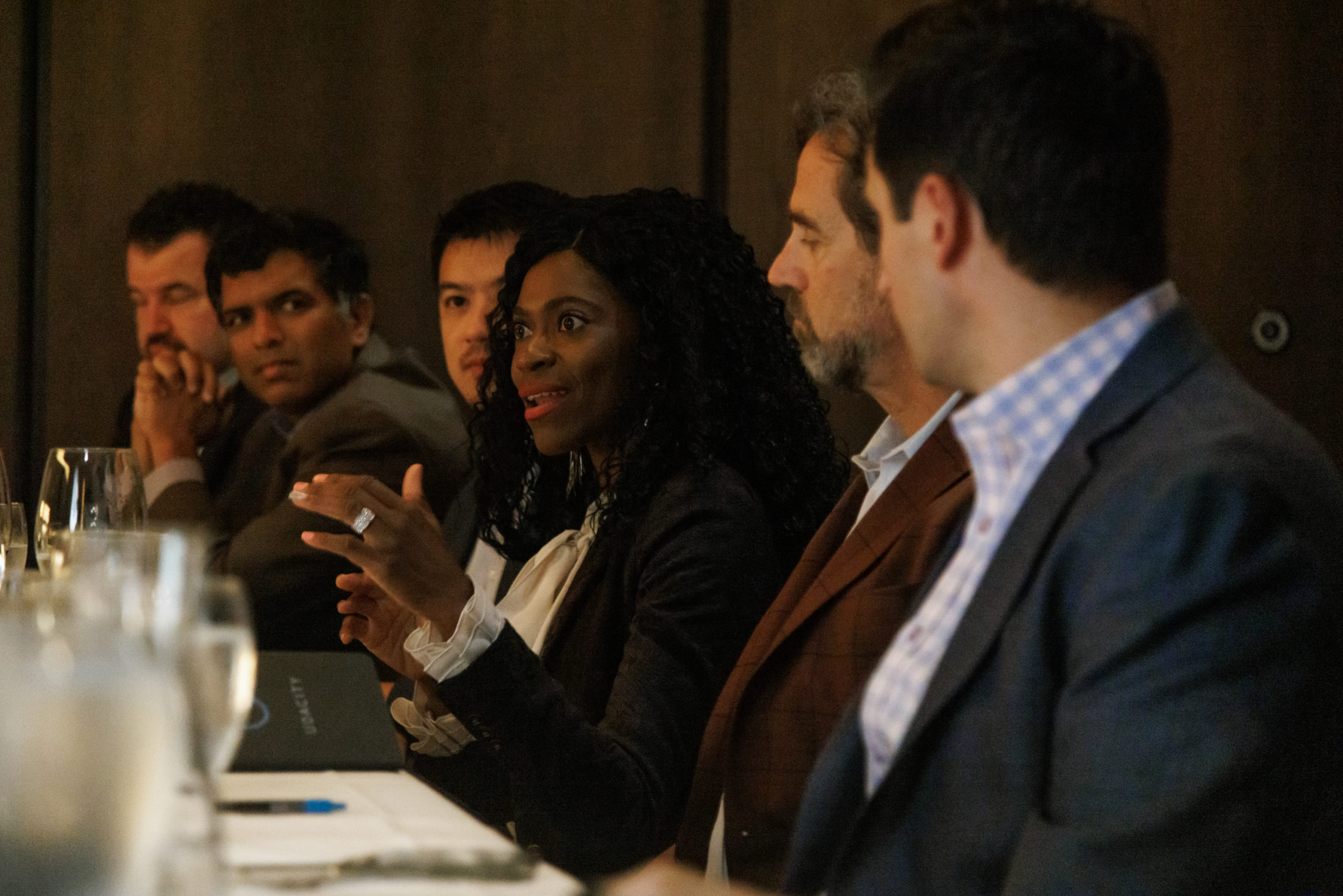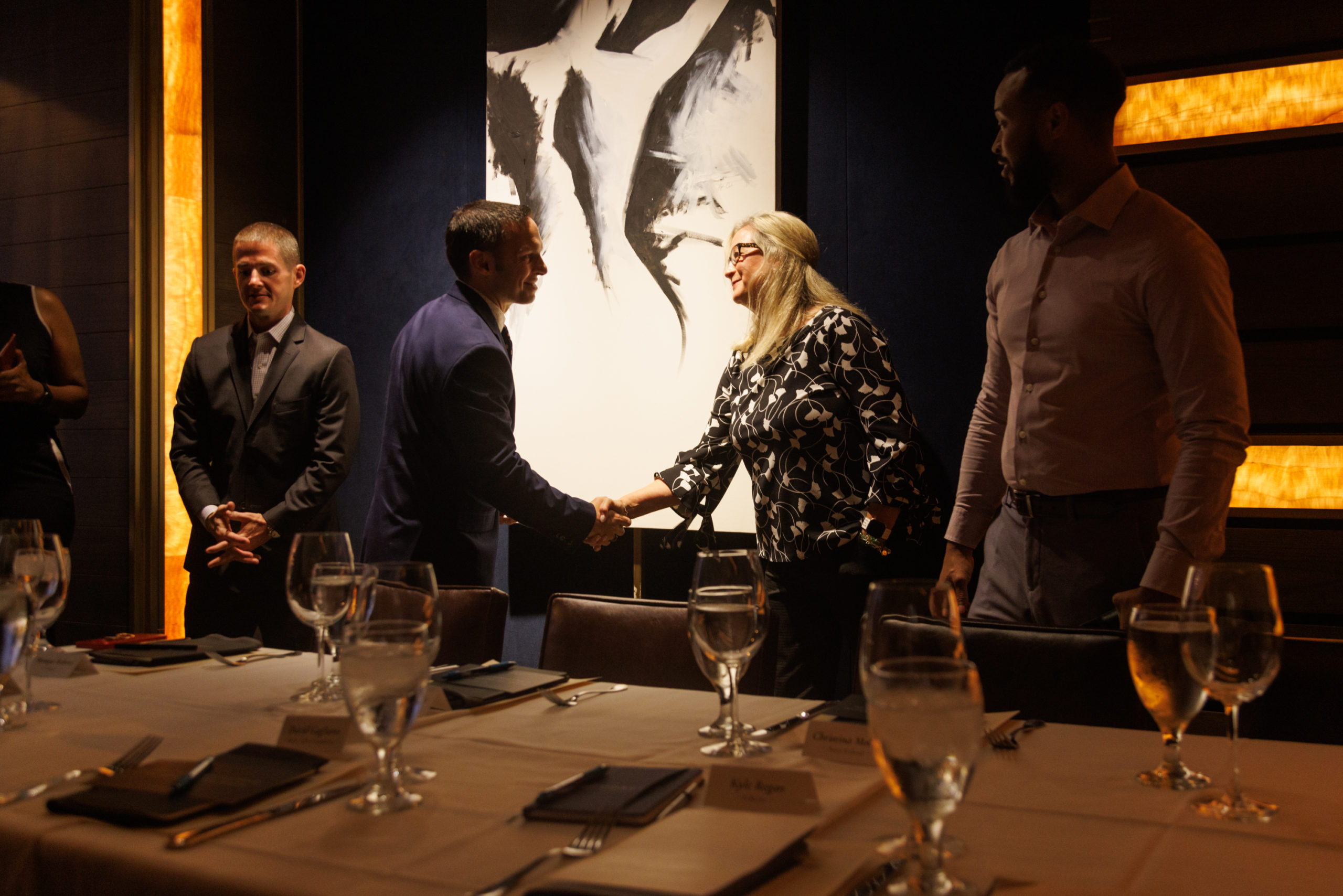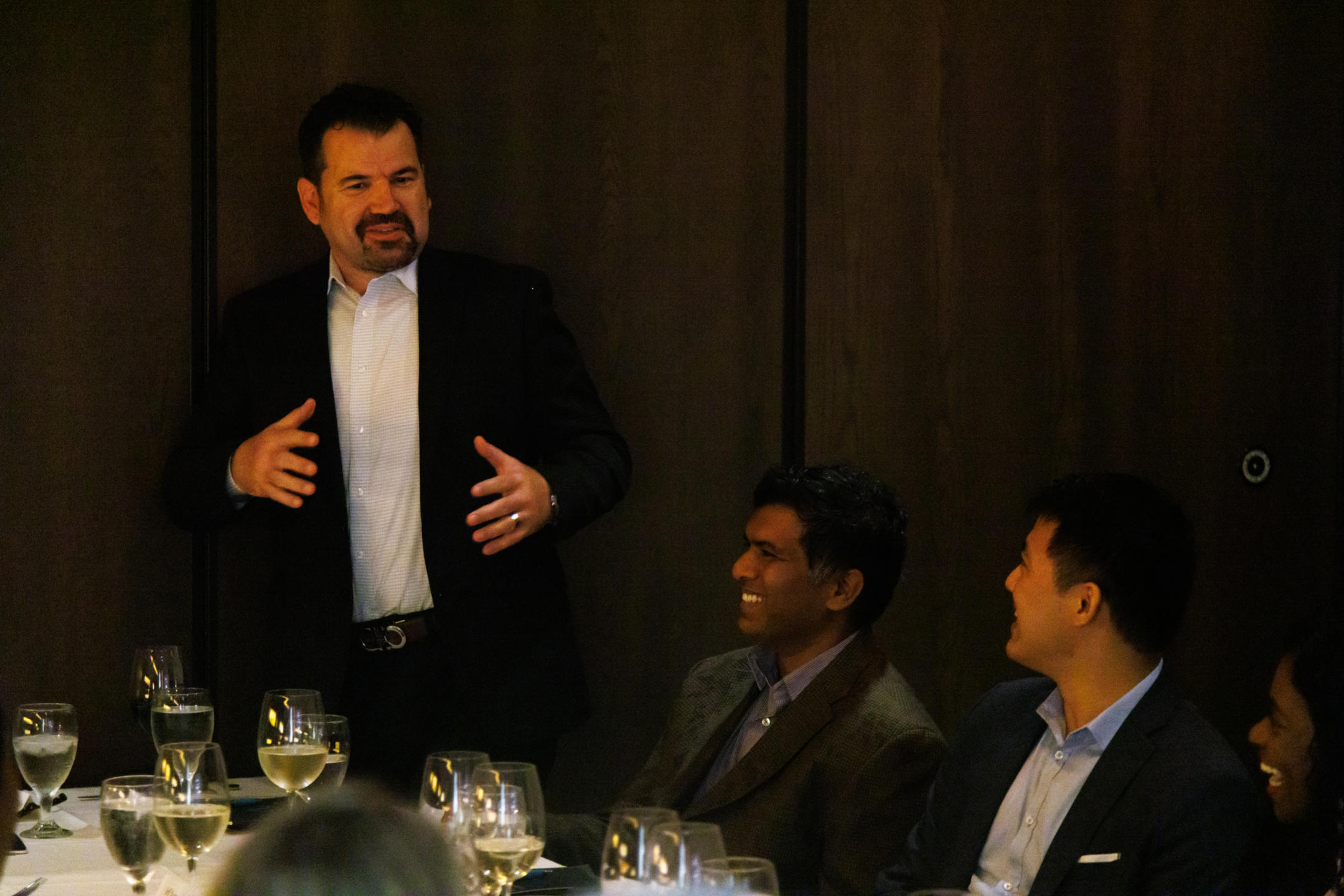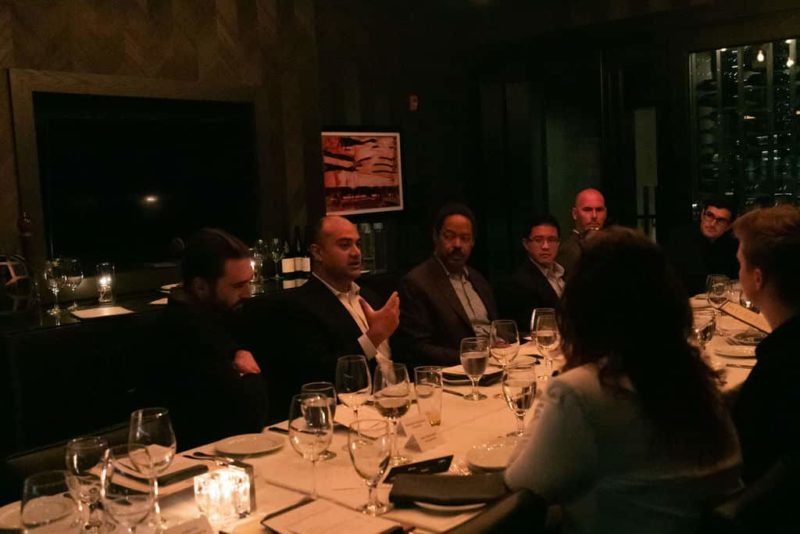Udacity and The Ortus Club partnered to bring together executive leadership for a series of exclusive, informal discussions around overcoming challenges in accelerating workplace digital transformation. Our executive dinners were held in two beautiful locations, Ocean Prime in Washington, DC, and New York, NY.
According to an Amazon and Workplace Intelligence study of 3,000 people, 70% of people don’t feel prepared for the future of work.
Organizations are feeling this and partnering with other leaders who can bring solutions.
Exceptional food and thought-provoking conversations led to great insights from our Udacity leaders and feedback from our executive-level guests. Here are 25 key takeaways from the events.

Change.
- Bringing generations together helps to bridge the obstacles in the digital world. People are hesitant to learn new things because of gaps in experience. Older and seasoned workers need to be engaged as change agents within your organization.
- Have your “WHY” before implementing any process changes. Workers don’t like things “thrown” at them, they want to be included. You need to address the fears and give transparency of how changes may affect their transformation.
- Upskilling can bring future knowledge to the organization, but ROI is hard to predict in our current time. Knowing the “big picture” and KPIs are important before engaging in organizational change.
- Innovators don’t get behind, they challenge and champion systematic improvements.

Talent Acquisition.
- HR is leaning in as more people are quietly quitting to maintain retention.
- Talent retention starts from the first interview. According to the Society for Human Resource Management (SHRM) Benchmarking Report, the average cost of hiring a new employee is $4,129.
- Get out of the way and let employees do what they have been hired to do.
- More people are embracing the work/life balance and valuing their personal time. NPR says, “Workaholism is out. Coasting is in. Call it the work-life balance manifesto.”

Retaining talent.
- Internal promotions keep people motivated to stay in their roles and engaged in your organization’s mission. This saves your organization money and resources by sourcing, interviewing, onboarding, and training external applicants.
- By encouraging career mobility and letting your employees know WHY you are investing in their growth. Studies show that access to learning and development opportunities is a key consideration for many employees and job seekers.
- Employees should have updated resumes on file and talk to their managers, always be ready to upskill internally.
- Succession planning is key for the future. People come and go from organizations – they are your company ambassadors. Welcome them back and treat them well on the way out.

Culture is not an exclusive club.
- Culture is created from the top down and doesn’t just happen. Tie cultural development into KPIs through events, surveys, and engagement.
- People leave because no one listens to them or the culture is undesirable.
- Leadership needs to identify the disconnections and find ways to create safe spaces to get feedback from their workers.
- Move people around in various sectors to acquire valuable skills and talents.
- Managers should be asking questions to see what untapped talent is on their teams. Be open about the transferable skills that are in your own organization.

Leadership.
- Leadership needs to be transparent and aware of how the “big” picture creates growth and transformation for the employees. They also need to understand that 20% of workers embrace changes, 60% are along for a ride or whatever happens, and 20% are actively engaging in “arnaracy” and not wanting to change.
- Leadership needs to be out in the trenches and building a culture that people want to be a part of.
- Ask your teams which models or processes are outdated and can make the workplace more efficient for workers. Be open to solutions and suggestions.
- Data-driven initiatives can connect the day-to-day connections of people.

DEI initiatives.
- Put more women and diverse faces in leadership roles. Create niche opportunities, mentoring, and safe havens to expand talents and skills.
- Diversity, Equity, and Inclusion initiatives fail because people have the education but lack the skills.
- When employees are engaged and motivated, they are on FIRE and will put in the work.
- Imagination and diversity make a real impact. Let your employees make a personal difference in the workplace instead of creating clones.

Join executive dinners to learn more.
Organizations are getting savvy and creative with employee retention and attracting top digital talent. Udacity’s approach to radical talent transformation aligns with your strategy and makes a measurable impact on your workforce challenges. We are grateful to all the leaders who shared their thoughts during these roundtables.
Digital transformation is an essential transition for maintaining the competitiveness of any organization. If you would like to be included in one of our future Executive Dinner roundtable events, please sign up here and we’ll reach out when we are heading to your city.
Explore Udacity for Enterprise.
Additionally, you can learn more about how Udacity can help your organization deliver next-level business results through digital transformation with Udacity for Enterprise.






